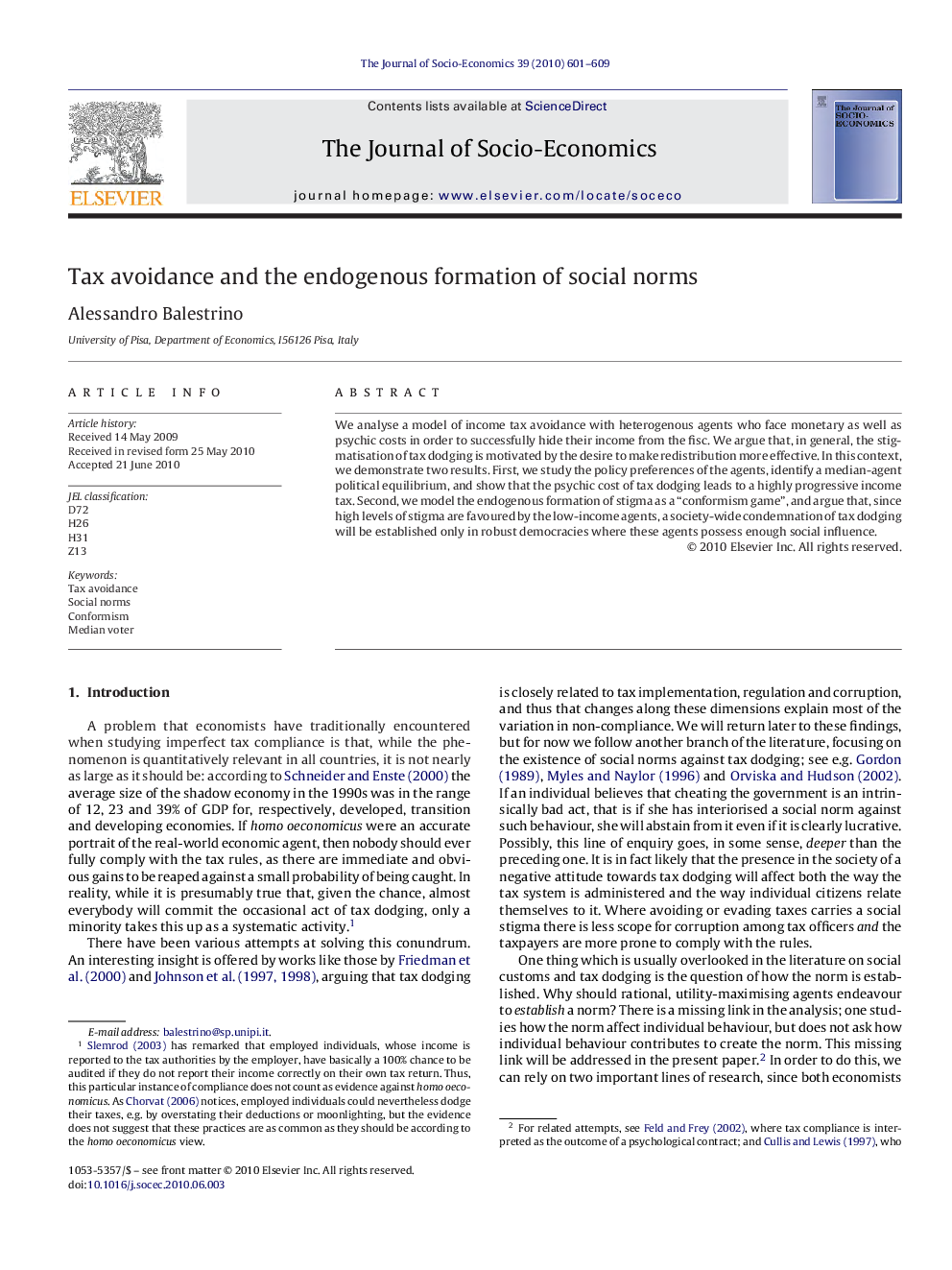| Article ID | Journal | Published Year | Pages | File Type |
|---|---|---|---|---|
| 971354 | The Journal of Socio-Economics | 2010 | 9 Pages |
We analyse a model of income tax avoidance with heterogenous agents who face monetary as well as psychic costs in order to successfully hide their income from the fisc. We argue that, in general, the stigmatisation of tax dodging is motivated by the desire to make redistribution more effective. In this context, we demonstrate two results. First, we study the policy preferences of the agents, identify a median-agent political equilibrium, and show that the psychic cost of tax dodging leads to a highly progressive income tax. Second, we model the endogenous formation of stigma as a “conformism game”, and argue that, since high levels of stigma are favoured by the low-income agents, a society-wide condemnation of tax dodging will be established only in robust democracies where these agents possess enough social influence.
Research highlights▶ Social norms are believed to motivate tax compliance. ▶ Conformism may lead to the establishment of social norms. ▶ Stigmatisation of tax dodging is favoured by the less well-off.
